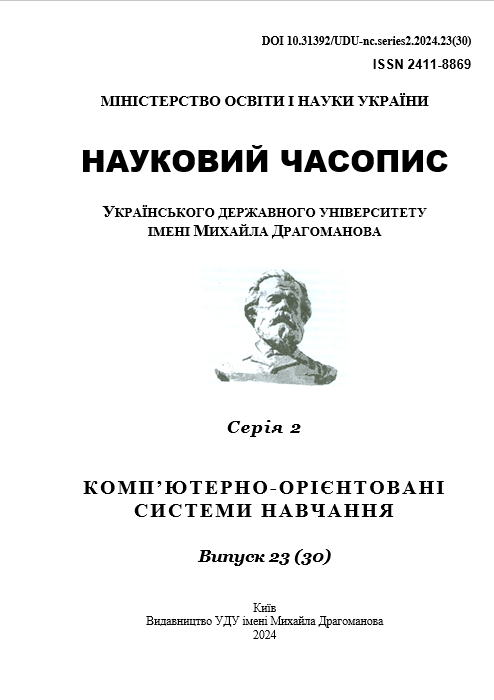Research component of digital competence of researchers and academic staff: the results of a statement experiment
DOI:
https://doi.org/10.31392/UDU-nc.series2.2024.23(30).02Keywords:
digital competence, researchеrs and academic staff, research component, scientometric databases, artificial intelligence services, social networks, plagiarism checkers, statement experimentAbstract
The article examines the research component of the digital competence of researchers and academic staff. The study's relevance is determined by the processes of total digitalization and the need for continuous development of the digital competence of scientists for effective professional activity. As part of the research project «Development of digital competence of researchers and academic staff using open educational and scientific information systems», a statement experiment was conducted (August-October 2024), involving 344 participants. Different types of digital services were analyzed: scientometric and bibliographic databases, artificial intelligence services, social networks for scientific collaboration, conference systems, journal systems, plagiarism checkers, mobile applications for scientific activities, and reference list generation services. A high level of use was found for scientometric databases (Google Scholar – 89%, Scopus – 79%, Web of Science – 78%), artificial intelligence services (ChatGPT – 75%), and social networks for scientific communication (Facebook – 71%). A low level of use was identified for conference systems, journal systems, mobile applications, and reference list generation services. The dependence of digital service usage on the respondents' age, work experience, and workplace was determined. The most active users of digital services were scientists aged 36-45 years, with 11-20 years of work experience, working in higher education institutions. The research results indicate the need for further work on improving the digital competence of researchers and academic staff, especially in the context of using specialized services and automating research activities. Prospects for further research lie in analyzing other components of the digital competence of researchers and academic staff.

